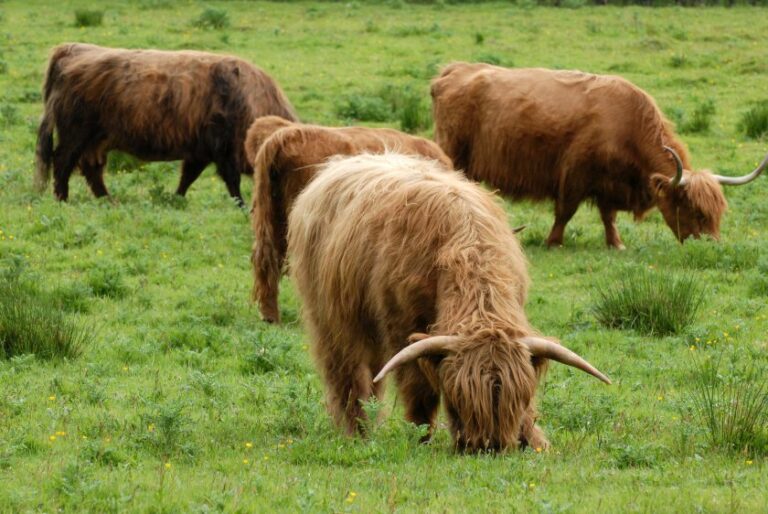The Scottish government has rejected a controversial recommendation by the Climate Change Committee (CCC) to slash livestock numbers by over a quarter, pledging instead to pursue a climate strategy that works with – not against – rural areas.
Last month, the CCC, which advises UK and devolved governments on emissions reductions, proposed a 27% reduction in Scotland’s livestock herd by 2040 as part of the country’s net zero pathway.
The recommendation was met with alarm from the farming sector, which has long argued that well-managed livestock systems can play a crucial role in tackling climate change.
At the Royal Highland Show this week, celebrations were briefly overshadowed by concerns the CCC’s advice could steer policy in a direction that marginalises farmers.
However, speaking at a Quality Meat Scotland breakfast event at the show, Rural Affairs Secretary Mairi Gougeon moved to reassure the sector.
“Let me be absolutely crystal clear, this government has no policy and will have no policy to cut livestock numbers,” she said, drawing a strong line under the CCC’s proposals.
The rejection has been welcomed by farming leaders, who continue to call for policies that recognise the role of grazing livestock in sustainable, pasture-based food systems.
NFU Scotland had urged ministers to oppose the CCC’s proposals and instead commit to a more holistic approach that supports climate action without sacrificing food production or the realities of Scottish land use.
The response comes as new greenhouse gas figures revealed that Scottish agriculture has already reduced emissions by 13.6% since 1990—demonstrating progress without scaling down production.
Duncan Macalister, NFU Scotland vice president, said: “Farmers are already cutting emissions and increasing efficiencies — not by reducing output, but by improving how we produce food.
“It’s about net zero, not zero emissions. Grazing livestock are part of the solution, not the problem — especially when managed well in pasture-based systems like ours.
“The government now needs to say clearly: how will future support reflect that reality and where does livestock fit in a climate-smart farming future?”
Earlier this week, NFU Scotland met with the CCC to discuss how farming can contribute to climate goals without undermining food production, biodiversity, or rural livelihoods.
The union has since called on the Scottish government to provide clarity on its long-term plans for the farming sector.
It urged ministers to set out a clear policy framework that recognises the essential role of livestock in Scotland’s land use and food systems.
It also called for future agricultural support schemes to be designed in a way that enables low-emission production, rather than penalising farmers for producing food.
In addition, NFU Scotland warned against any policy direction that could undermine national food security or destabilise rural communities—particularly in upland and marginal areas.


